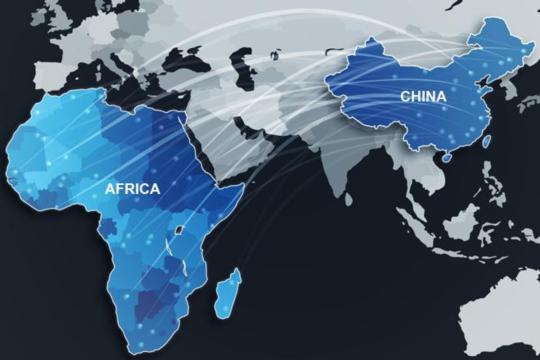China is going to fund and develop a new port in Mozambique, where a Chinese company – Dingshenq Minerals – has been exploring heavy sands in Chibuto since 2018. The new port is in the south of the country, an area known for the rich mineral contents including zirconium, titanium, tungsten and rate-earth elements, besides gemstones.
The development is coming in the backdrop of raising questions as to why Africa remains poor despite an abundance of natural resources and economic cooperation with industrialized countries. The short answer is that nobody is interested in industrializing Africa, as political and ethnic conflicts could not be perennially blamed for underdevelopment. However, it is a matter of facts that the continent remains a victim of perpetual exploitation by industrially advanced nations for raw materials on sub-optimal, less rewarding trade terms.
The African Institute for Economic Development recently highlighted in a paper that despite centuries of exploitation of mineral wealth “many African countries still rank among the poorest nations on the globe.” The problem is persisting because Africa lacks capital, expertise and technology to make the use of its abundant resources for its own industrialization, a weakness that is exploited by developed and developed countries like the US, Canada, Australia, France and the UK, as well as emerging economic powerhouses like China. Knowingly or not, they all continue to exploit natural resources to their own benefit, much to the detriment of the continent, which holds 30% of the mineral resources of the world, with huge reserves of diamonds, salt, gold, iron, cobalt, uranium, copper, bauxite, silver and petroleum. To mention one example, 57% of Africa’s export earnings come from hydrocarbons and Nigeria, Libya, Algeria, Egypt and Angola together account for 85% of the continent’s oil production. The copper belt in Haut Katanga Province (Democratic Republic of Congo), the diamond minerals in Sierra Leon, Angola, and Botswana and rare metals in South Africa’s Steenkampskraal Mine are only a few examples of the abundance of mineral resources, yet Africa’s level of industrialization remains low.
Most of the infrastructure built by the main consumers of its mineral resources is driven by their mercantile interests. While there is a lack of infrastructure for connectivity, Africa’s mineral-rich areas have been connected by ports by foreign companies, a logic of colonial days which remains questionable and is adopted also by the new, growing Chinese presence. Today, Bejing is the biggest bilateral coastal infrastructure funder in the world with a total USD 65 billion spent on funding, surpassing Japan and multilateral institutions like the Asian Development Bank. More than half of the 46 coastal port projects were financed by Chinese entities and 11 are operated by them. It funded Lekki Deep Sea Port in Nigeria with the aim to make it a major cargo hub in West Africa, and it still has operating interests in more than a dozen countries including Djibouti, Tanzania, Mozambique, South Africa, Angola, Republic of Congo, Ivory Coast, Ghana, Sierra Leona, Guinea Cape Verde and Mauritania.
The United Nations has made it clear that industrial development is of critical importance for sustained and inclusive economic growth in African countries. Industry can enhance productivity, increase the capabilities of the workforce, and generate employment by introducing new equipment and new techniques. However, despite much euphoria, the African countries are not able to industrialise and have fallen under serious debt problem and colonial dynamics are still working. It is high time that Africa thinks how it can use its mineral resources for its own industrialization. Partly it is because of political instability of the countries, corruption and ambivalence of African leaders and partly because Africa’s vulnerability due to lack of capital and technology.
geopolitica.info

